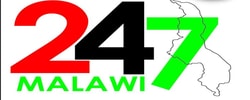As the anticipation for the 2025 elections in Malawi builds, there is widespread speculation on whether President Lazarus Chakwera will secure a second term in office or follow the path of two past presidents who served only one term.
This question sparks curiosity, especially among those close to Chakwera, as time steadily moves forward.
Yet, amidst this speculation, another crucial question arises: If not Chakwera, who stands poised to win the upcoming presidential election?
The political landscape of Malawi leading up to the tripartite elections presents an intriguing tableau, notably marked by the apparent quietude and inactivity of major opposition political parties.
While some may interpret this relative dormancy and the defections of members to the Malawi Congress Party (MCP) as indicators of its assured dominance, such a conclusion oversimplifies the intricate dynamics of Malawi’s political sphere.

However, the electoral prospects of opposition parties hinge significantly on their ability to present a united front. Infighting, factionalism, and lack of cohesion among opposition parties could weaken their electoral viability.
Should they fail to project unity and instead engage in internal conflicts, voters may perceive them as unstable and ineffective alternatives, thereby bolstering MCP’s chances of electoral success.
The MCP’s potential to win elections easily in 2025 could be attributed to a combination of factors, including weaknesses within other political parties, effective leadership, and messaging by the MCP, and broader socio-economic dynamics shaping voter preferences.
Truth be told, President Chakwera has exhibited a strong and effective leadership style during his first term in office. He has prioritised issues such as economic development, healthcare, education and infrastructure improvement. His actions in addressing national challenges have gained him popularity among the electorate.
Despite facing numerous natural disasters and pandemics such as COVID-19 and Cholera, Chakwera’s administration has successfully implemented various policies and projects that have positively impacted the lives of citizens.
On the other hand, the opposition parties in Malawi may be fragmented, lacking strong leadership and coherent policies. Their focus seems to be on removing Chakwera from office rather than presenting Malawians with policies aimed at transforming the country.
Compounded by internal discord, absence of a clear vision and an inability to offer a credible alternative to Chakwera’s leadership, opposition parties find their capacity to mount a convincing challenge in the upcoming elections significantly weakened.
The Democratic Progressive Party (DPP) finds itself in disarray, with internal divisions casting doubt on the party’s direction for the upcoming elections. Membership is split on whether to retain APM as a candidate, adding to the uncertainty surrounding the party’s future.
Meanwhile, the United Democratic Front (UDF) appears to be a mere shadow of its former self, grappling with the challenge of asserting relevance in the current political landscape. Conversely, the relative popularity of the United Transformative Movement (UTM) on social media platforms has shown signs of dwindling in recent times.
Without a compelling alternative, voters may lean towards maintaining the status quo, particularly if they perceive Chakwera as the superior choice.
Honest Malawians will agree that under Chakwera’s leadership, Malawi has experienced a period of political stability and social cohesion. A stable political environment often favors the incumbent, as voters tend to prioritise continuity.
Chakwera’s demonstrated leadership style, achievements in office, public approval ratings, weak opposition, political stability, and incumbency advantage collectively position him as a strong contender for victory in the 2025 presidential elections in Malawi.
In conclusion, President Chakwera appears poised to secure a second term during next years elections.









